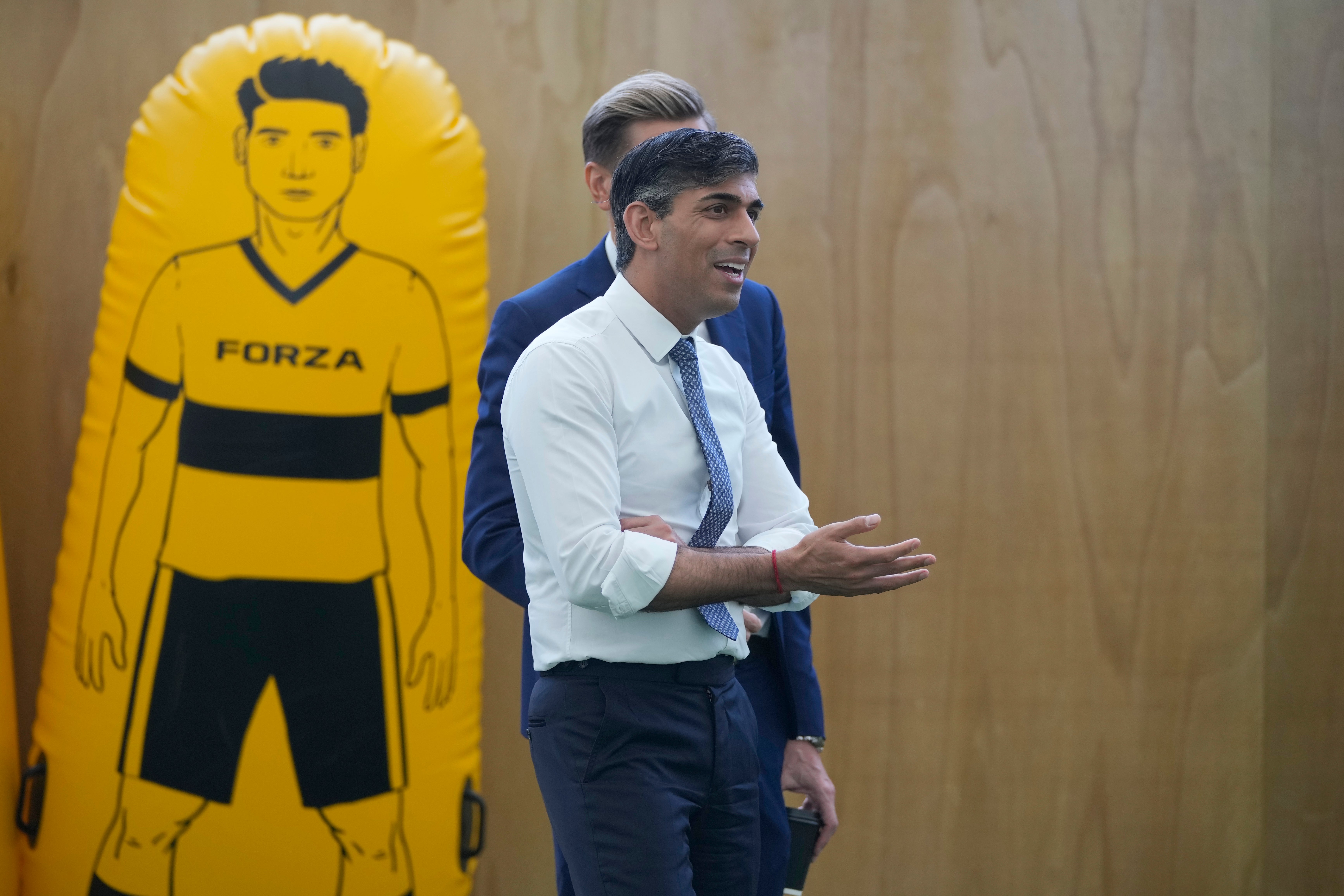As Rishi Sunak stood in Downing Street last Wednesday, his voice barely audible over the music being blasted by protesters, and rain trickling down his face, it was no surprise that political commentators were left scratching their heads at what on earth had prompted the PM to call an election.
Some faintly positive economic news seemed an obvious, if scant, justification. Alternatively, some speculated that Rishi’s decision was prompted by his realisation that his plan to “stop the boats” by flying all of Europe’s dinghies to Rwanda was not going to work any time soon. Better, in that case, to cut his losses and go to the country before that failure became all too obvious.
Even more cynical observers wondered if a July election defeat might enable the PM to offer a speedy resignation and relocate to Silicon Valley in time for the new school term in America, in August. That all sounded a bit Meta to me.
My preferred explanation was the one that had at its heart the only thing more important than politics: football. By polling day on 4 July, the European Championships will be well under way; and if things have gone to plan, England and Scotland will both have made it through to the quarter-finals – ideally during a delightful period of fine weather. Should that be the case, so the theory goes, the country will be feeling so jolly that they’ll forget the last 14 years and back the current government for another glorious five.
If the mood of the electorate can really affect the way people vote, then there’s a certain logic to the idea. Yet, as with so many things in their election campaign to date, the Tories have surely made a misjudgement on this.
After all, while Rishi Sunak appears pretty genuine in his affection for Southampton FC, he doesn’t come across as much of a footie fan. He might not be as cringe as David Cameron, who couldn’t seem to work out if he supported West Ham or Aston Villa, but on day one of campaigning, he left workers at a Welsh factory aghast when he asked them if they were looking forward to the Euros – Wales having missed out on qualification.
Keir Starmer, by contrast, seems to be something of a football nerd. He may have been disappointed that his beloved Arsenal didn’t win the Premier League but that won’t dim his obsession. He plays five-a-side, too. All in all, if football fans are going to be swayed by a party leader’s interest in the outcome of any football tournament, then it’s Starmer they’re likely to identify with.
As for whether an England (or Scotland) run of victories is likely to boost Rishi’s narrative that things are getting better under his “plan”, it seems like a stretch – especially when you consider the antipathy that has characterised the relationship between the England football team and the Conservative Party in recent times. When England players began taking the knee ahead of games, Lee Anderson (then still a Tory) said he would no longer watch their matches. Brendan Clarke-Smith, Conservative MP for Bassetlaw, said fans were “sick and tired of being preached to”.
If the home nations perform well at the Euros, the promise of more good things to come under a Labour government may well feel an increasingly enticing prospect – rather than prompting people to think it’s a sign that we’ll be better off sticking with the current mob.
When Labour last won an election, it was less than 12 months on from the tournament when football (almost) came home. In the midst of a heatwave, Euro 96 captivated the country as Gazza, Shearer, Pearce et al came within a toe’s length of beating Germany in the semi-finals. Even though England didn’t quite do the business, they gave a glimpse of a brighter future.
Tony Blair, who had famously played head tennis with Kevin Keegan a year earlier, not only tapped into the positivity but became as one with it. John Major was, in fact, a steadfast Chelsea fan but everyone knew that cricket was his first love – and he couldn’t harness sporting success in the way Blair could anyway.
Whatever crumbs Rishi Sunak was clinging to when he went to the country last week, results going the home nations’ way at the Euros aren’t likely to help the election result go his way on 4 July. But that’s not to say his campaign can’t find common ground with football. Indeed, he may discover no more fitting description of his time in Downing Street than the most famous line of sporting commentary ever uttered: “They think it’s all over…”





Join our commenting forum
Join thought-provoking conversations, follow other Independent readers and see their replies
Comments